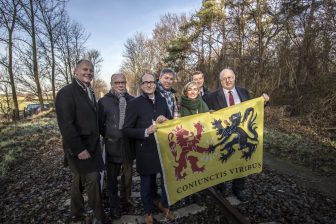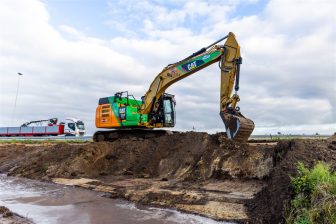ADB: innovative infrastructure development Mongolia
Mongolia’s Urban Poor to Take Charge of Own Development
Manila, Philippines – Residents of Mongolia’s poor urban areas will be assisted with prioritizing their development needs, making decisions on how resources are to be used, and managing and monitoring assistance being offered to their communities.
The innovative approach will be part of a $1.5-million grant from the Japan Fund for Poverty Reduction (JFPR) being administered by ADB.
“Instead of top-down planning, communities themselves will remain firmly in the driver’s seat, making decisions, administering funds, and managing implementation of their priority investments,” says Amy Leung, an ADB Principal Urban Development Specialist. “The grant project will provide the community not just with funds but also technical support and guidance.”
Almost 80% of Mongolia’s poor live in temporary and informal settlements, known as ger areas. Many suffer from poor health due to unsafe drinking water, poor sanitation, little or no solid waste management system, and polluted air due to the rampant use of coal stoves for cooking and heating.
“Community-driven development has proven successful in other developing countries, and is a promising solution for giving voice to and meeting the needs of Mongolia’s poor and vulnerable families in ger areas,” Ms. Leung adds.
Under the grant, 23,749 households in the communities of Bayanhogor, Choyr, and Erdenet will be organized into 15 local community-based organizations that will identify 165 small-scale infrastructure and business opportunities to improve their own livelihood. About half of the beneficiaries are living below the poverty line and about half of them are women.
The project will introduce a decentralized, demand-driven “open menu” approach to community infrastructure development that has not previously been used in Mongolia.
If the residents along a block collectively decide to have individual water connections, they will be able to access a group loan from the Urban Development Sector Project to buy the necessary pipes and fittings. This participatory approach has proven to be effective as communities can claim ownership of the project and are far more active in maintaining the facilities.
The grant aims to engage these communities as active citizens, not passive beneficiaries.
Residents will also be encouraged, as part of a voluntary component of the program, to form savings groups to help them save money, as well as give out loans to their neighbors.
The German Development Service will contribute $300,000 in cash and kind to the project, and the Mongolian Government will donate $150,000 in kind.
The project’s executing agency is the Ministry of Construction and Urban Development. The project will link with other funding agencies, including the World Bank, involved in urban development sector in Mongolia.
The JFPR was set up in 2000 with an initial contribution of $90 million, followed by additional contributions totaling $155 million in 2002, and annual contributions up to 2006 bringing the total amount to $360 million.
U las zojuist één van de gratis premium artikelen
Onbeperkt lezen? Profiteer nu van de introductieaanbieding voor € 10,- per maand.
Bent u al abonnee?



